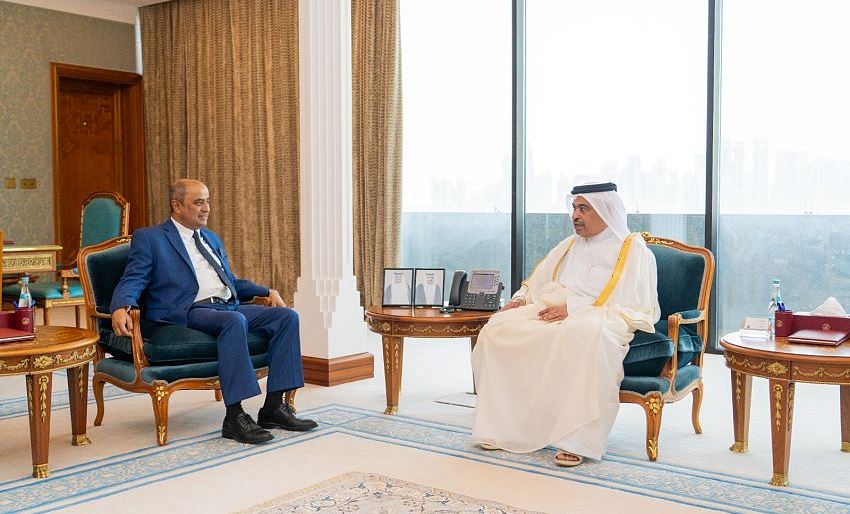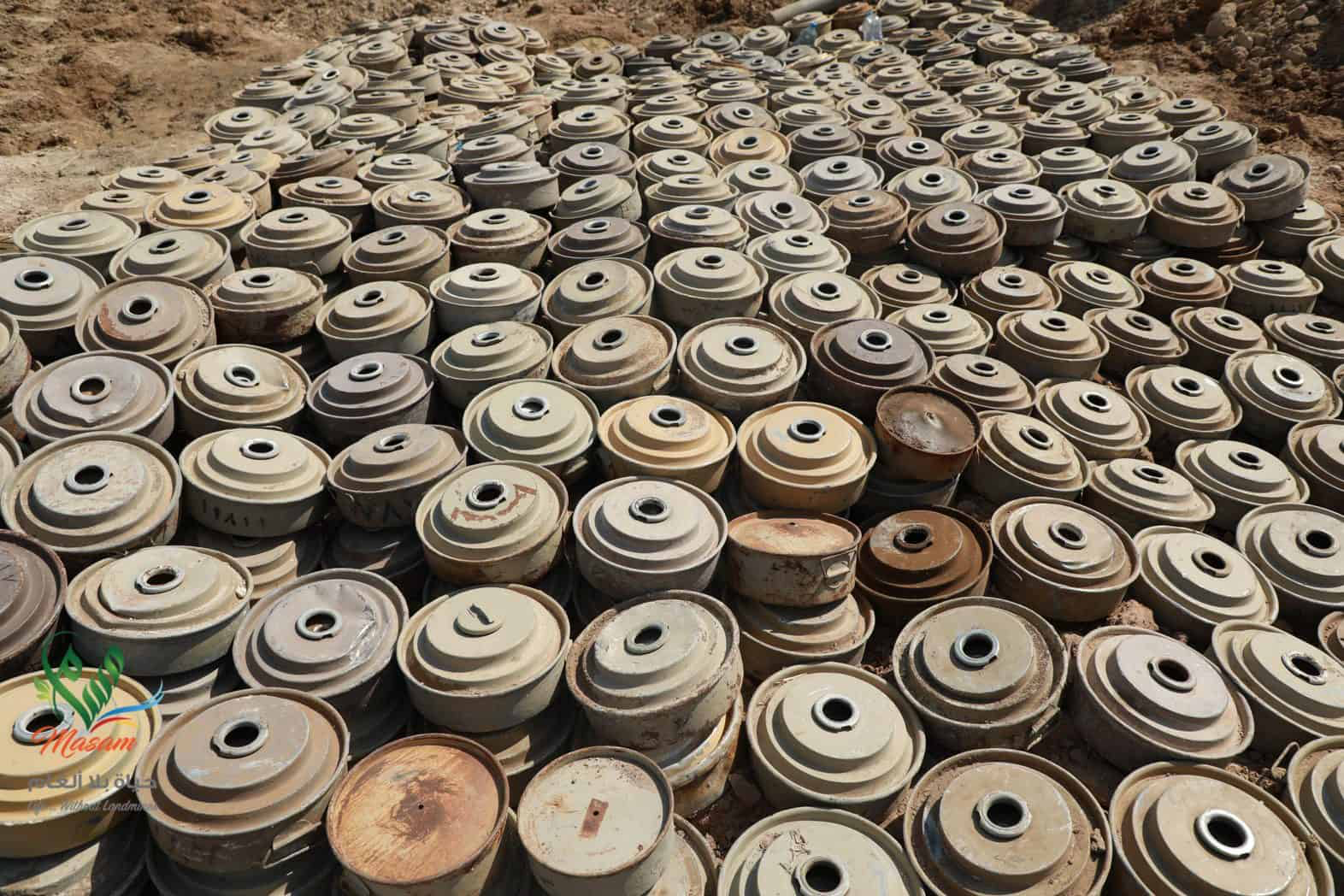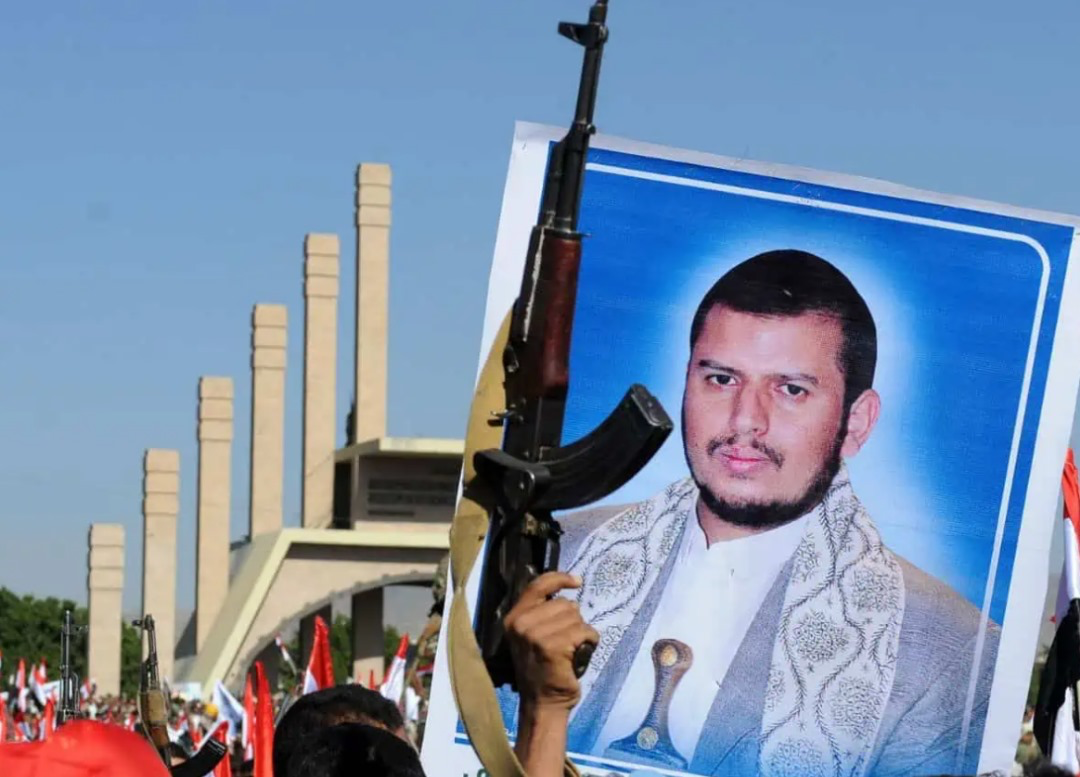
Barran Press
The Yemeni Minister of Finance, Salem bin Brik, met with his Qatari counterpart, Ali al-Kuwari, on Tuesday, July 2nd, 2024, to discuss the latest economic and financial developments in Yemen. The meeting focused on the significant challenges facing the country's public finances amidst the ongoing war and the escalating actions of the Iran-backed Houthi militia in the Red Sea.
According to the official Yemeni news agency Saba, the meeting also explored potential support needed during this critical phase to assist the government in fulfilling its obligations, improving services and infrastructure, and continuing the implementation of comprehensive reforms in the economic, financial, monetary, and administrative sectors. The aim is to enhance the performance of state institutions across all aspects of life.
During the meeting in Doha, Minister bin Brik highlighted the overall economic situation and the repercussions of the economic war waged by the Houthi militia, which has exacerbated the humanitarian suffering of the Yemeni people and worsened their economic and living conditions. He also emphasized the significant challenges facing public finances.
The minister outlined the government's priorities in implementing comprehensive reforms, combating financial and administrative corruption, and achieving economic stability. These efforts aim to improve the overall situation and alleviate the suffering of the Yemeni people.
In response, the Qatari Minister affirmed his government's commitment to supporting the Yemeni government and people, as well as its dedication to promoting peace, security, and stability in Yemen.
The World Bank, in a report released on June 26th, 2024, highlighted the severe obstacles facing the Yemeni economy. The ongoing conflict and regional tensions are exacerbating the country's economic and humanitarian crises. The report predicts a 1.0% contraction in Yemen's GDP in 2024, following a 2.0% contraction in 2023 and a modest 1.5% growth in 2022.
The report emphasizes the significant impact of escalating regional tensions, particularly the Houthi attacks in the Red Sea, which have disrupted international shipping and trade, leading to increased shipping costs and insurance premiums, further straining the Yemeni economy.
The World Bank underscores that the economic outlook for Yemen remains highly uncertain. Resuming oil exports and achieving a broad economic recovery are unlikely without a lasting peace agreement. Ongoing regional conflicts, currency depreciation, and pressure on public finances pose significant risks.
The report concludes that achieving a lasting peace agreement could rapidly improve Yemen's economic prospects, alongside external financial assistance and reconstruction efforts.
Yemen is facing a severe currency crisis, with the local currency, the rial, reaching record lows against foreign currencies in Aden and areas controlled by the Yemeni government. The dollar has surpassed 1800 rials, compared to 1676 rials in late April. The Saudi rial has also reached 477 rials, up from 441 rials.
The Yemeni economy is facing significant challenges due to the currency split imposed by the Houthi group, which is designated as a terrorist organization by the international community. These challenges were further exacerbated by the group's attacks on oil export ports in October 2023, preventing the internationally recognized government from exporting oil.
On August 1st, 2023, Saudi Arabia announced a new financial grant of $1.2 billion to the internationally recognized Yemeni government to support the general budget and bolster the value of the Yemeni rial.





